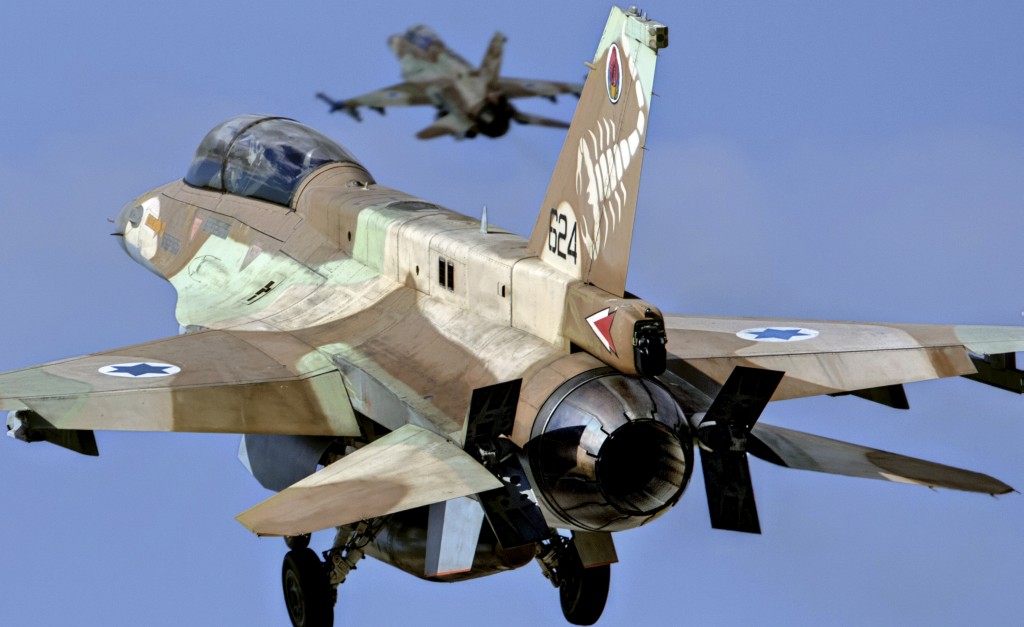Six Hezbollah fighters were killed Sunday in an Israeli air strike on the Syrian side of the Golan, including the son of assassinated senior commander Imad Mughniyeh.
The deaths were announced after an Israeli security source told AFP that an Israeli helicopter conducted a strike against “terrorists” near Quneitra, on the Syrian side of the Golan Heights.
“A group of Hezbollah mujahedeen were martyred in a Zionist rocket attack in Quneitra, and their names will be revealed later,” said Hezbollah’s Al-Manar television.
They were killed during a field reconnaissance mission in the Mazraat Amal village of Quneitra province, it said.
Hezbollah said in a statement received by AFP that six of its members were killed in the attack, among them a top military leader and Jihad Mughniyeh, the son of Imad Mughniyeh, a top Hezbollah operative killed in a 2008 car bombing in Syria which the group has blamed on Israel.
A source close to Hezbollah told AFP the killed military leader was Mohammed Issa, a senior commander responsible for Hezbollah operations in Syria and Iraq.
Imad Mughniyeh was wanted for the 1985 hijacking of a TWA airliner in which a US Navy diver was killed and the 1992 bombing of Israel’s embassy in Argentina that cost 29 lives.
The Israeli source did not identify the targets but alleged they were preparing for an attack on Israel, without providing more details.
Syrian state television confirmed the Israeli air strike and said six people were killed in the raid but made no mention of Hezbollah.
The Shiite movement is an arch-enemy of Israel, and has sent thousands of fighters across the border to aid Syrian President Bashar al-Assad’s regime as it battles Sunni-led rebels.
The attack comes days after Hezbollah chief Hassan Nasrallah threatened to retaliate against Israel for repeated strikes on Syria.
The Al-Manar channel, meanwhile, branded the strike “a costly adventure that threatens the security of the Middle East”.
Missiles can hit Israel
Nasrallah on Thursday told Al-Mayadeen television that Hezbollah has had Iranian Fateh-110 missiles that can hit the whole of Israel since 2006, adding that it is always ready to fight the Jewish state.
Israeli air strikes on Syria “target the whole of the resistance axis,” Nasrallah said in reference to Syria, Iran and his government, who are sworn enemies of Israel.
“The repeated bombings that struck several targets in Syria are a major violation, and we consider that any strike against Syria is a strike against the whole of the resistance axis, not just against Syria,” he said, adding the “axis is capable of responding” anytime.
He also boasted that Hezbollah was “stronger that we ever were as a resistance movement” and said the group known for its sophisticated arsenal has Fateh-110 missiles.
These missiles have a minimum range of 200 kilometres (125 mile) and can hit the whole of Israel.
According to Pentagon officials, Hezbollah has 50,000 missiles, including some capable of reaching Tel Aviv.
The Israeli air force has carried out several raids against targets in Syria, including depots storing weapons meant for Hezbollah, since the conflict there started nearly four years ago.
The most recent strike was in December, when Israeli warplanes struck weapons warehouses near Damascus, according to the Syrian Observatory for Human Rights monitoring group.
Israel has never confirmed it carried out the strikes, but it says it has a policy of preventing arms transfers to militant groups including Hezbollah.
Israeli media said, however, after the December strikes that the air force had targeted arms convoys or depots of Iranian-made rockets.
In February 2014, two Israeli air raids hit a Hezbollah target on the Lebanon-Syria border, according to Lebanese security sources.
At the time Lebanon’s National News Agency said the raids targeted around the town of Nabi Sheet, a Hezbollah stronghold.
Nasrallah said on Thursday that Hezbollah was ready to fight a new war against Israel in Lebanon and renewed a threat to invade the Galilee region of northern Israel.
Hezbollah fought a bloody war with Israel in the summer of 2006 that killed some 1,200 Lebanese, mostly civilians, and 160 Israelis, most of them soldiers.
Syria and Israel are officially in a state of war, and Israel has occupied the Golan since 1967. The occupation is not recognised by the international community.









